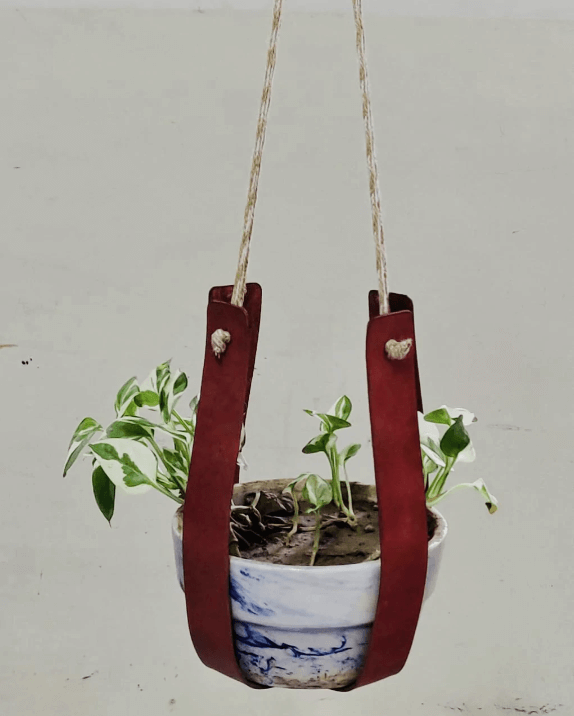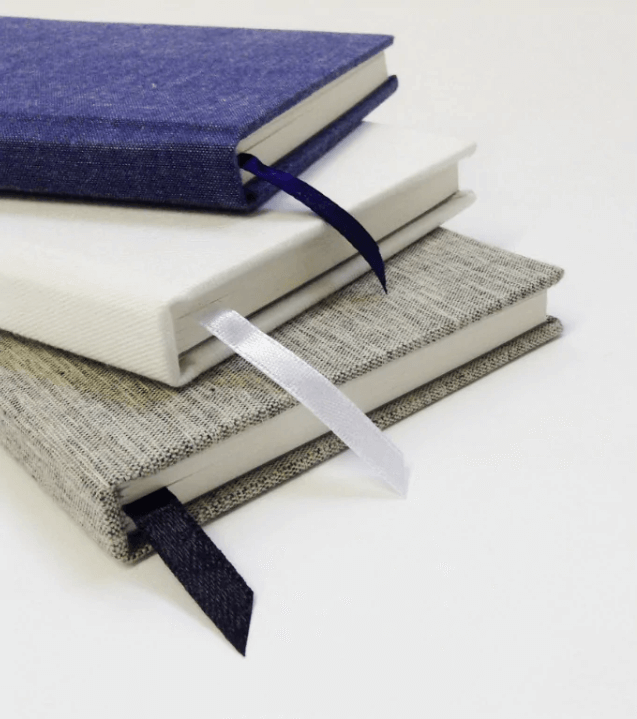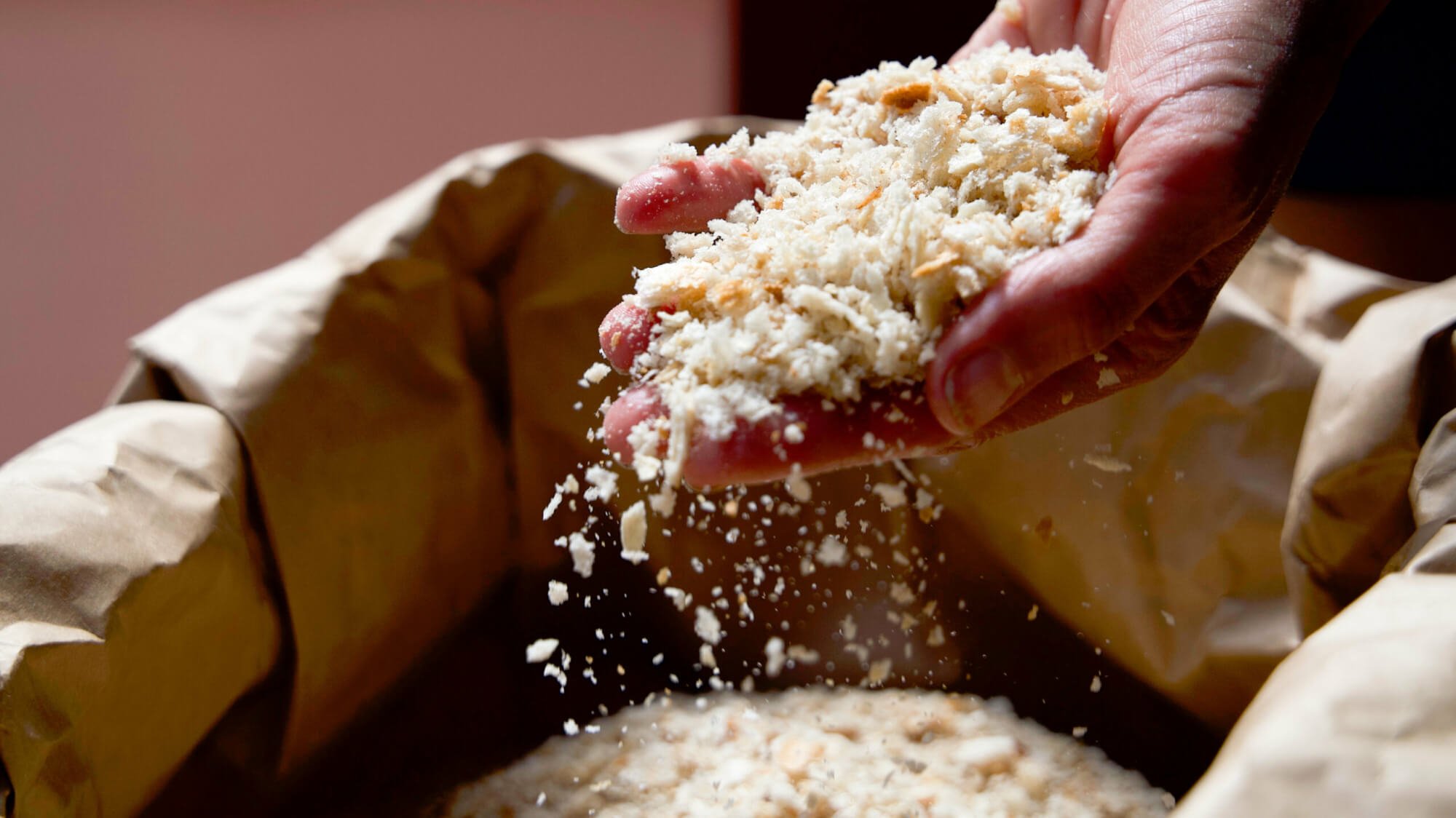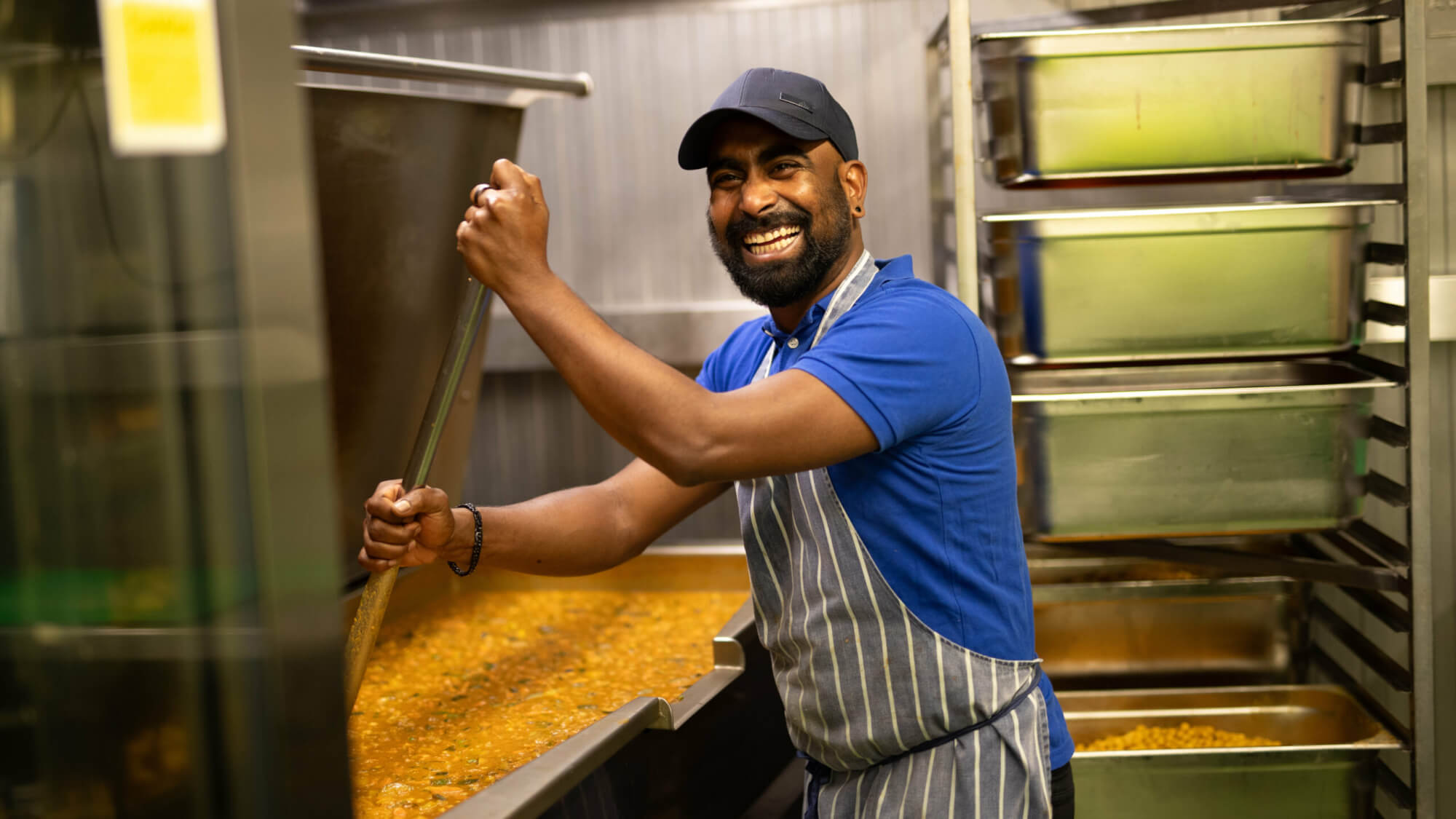Circular Booster
Support given:
Redesign
KAPDAA - The Offcut Company, turns brands’ off-cut fabrics into beautiful accessories. They saw how limited solutions there were in the UK for other types of textile waste, and found a business opportunity to expand their services.
Thanks to ReLondon and the Mayor of London's Green New Deal fund support, they were able to develop and trial a new service where they collected textile waste, sorted it manually, and used specialist equipment to prototype new fibres and products. KAPDAA used 50kgs of textile waste, thus avoiding it from going to landfill. The pilot also helped them identify various applications and markets for the new fibres. The company also generated 1 new job for now, but see potential to create 6 new jobs minimum over the next 12 months. As a result of this pilot, KAPDAA now plans to expand its offering from upcycling off-cuts (mainly end-of-roll textile waste) across textile waste streams (post-manufacturer and post-consumer waste), which will drive new revenue streams for the business and make it more profitable in the long-run.What was the challenge?
KAPDAA creates unique, sustainable products from the beautiful offcuts generated by fashion and interior designers, textile weavers and mills. They collect excess materials such as end-of-rolls fabrics and transform these into branded notebooks, sleeping masks, card wallets, bags, hair accessories and many more items – thus saving the offcuts from going to waste whilst creating a new revenue stream for the fashion brands.
Since its inception in 2009, KAPDAA has grown and worked with an impressive portfolio of 300+ customers in the UK, ranging from fashion studios and brands like Raeburn and Emma Shipley to the National Portrait Gallery in London and the retailer Selfridges.
While offering a clear solution for offcuts, KAPDAA knew that this was only a small portion of textile waste in the fashion industry. A lot of issues arise after clothes are made and worn, with approximately 75% of the clothes disposed by Britons ending up incinerated or landfilled, usually because they are unsuitable for resale. At the same time, KAPDAA was increasingly being approached by their clients asking for solutions to other fabric waste, such as unsold garments.
KAPDAA saw that they could strengthen their business by offering their clients the option to send them unsold and old garments. They could then process these items back into fibres, which could then be used against by the fashion industry and a range of other markets. This would make them more competitive by being able to process different textile waste streams for the same clients, increasing their revenues, and making them more profitable in the long run – all the while helping their customers reduce their impact on the environment.
What was the response?
KAPDAA’s started by experimenting with different processing technologies to see which would deliver the best results for the various markets they had in mind. Creating new fibres from second-hand clothing is challenging because garments have different blends of materials (e.g. cotton, wool, polyester, mixed with various binders), and this can affect whether the end fibre meets the standards required for different applications. They used a range of specialist equipment to evaluate the pros and cons of different approaches (e.g. sorting, shredding, carding etc). They were able to use the GLA’s Green New Deal funding to rent the equipment, and therefore minimise capital spend until they could make a business decision as to which machinery would deliver the best results for their service.
In parallel, KAPDAA engaged with potential buyers to assess and identify destinations for their processed fibres. Due to disruptions in the market and limited availability of contacts, this took longer than originally anticipated, with more than eight months passing before site visits could be organised! But with perseverance, KAPDAA eventually succeeded in securing a collaboration with a high-end manufacturer in home goods to integrate their new fibres into their existing processes.

“The support from ReLondon and the GLA's Green New Deal Fund has allowed us to start investigating a large-scale solution for textile waste in the UK. We're committed to making the UK self-sufficient for its own textile waste recycling.”
Nishant Parekh, Founder of KAPDAA - The offcut company
What were the outcomes?
Thanks to the GLA’s Green New Deal fund and ReLondon’s support, KAPDAA have been able test different ways to process unsold or worn garments, and build market interest in this new service. In a period of 6 months alone, KAPDAA was able to process 50kgs of textile waste, thus avoiding it from going to landfill.
In the long term, the development of this new service and capability will also create economic opportunities locally. This trial alone saw KAPDAA hire 1 new employee, but as the new service is scaled they hope to grow their team with at least 6 new roles over the next 12 months.


Lessons learned & next steps
KAPDAA learnt firsthand that sorting and storing large volumes of garments, whether manually or automated, is a challenging operation and needs the right facilities. Unfortunately, warehouse facilities in London are expensive, and – due to health & safety considerations – don’t always allow larger pieces of machinery like commercial shredders to be co-installed in the same space. Therefore, before proceeding with any similar pilot, it’s important for businesses to secure the right space to undertake their operations.
This pilot also highlighted the importance of finding the right market for new products made from waste. It can be challenging to launch a new product with slightly different attributes to an industry that has an established way-of-working. For example, KAPDAA learnt that most manufacturers in the home goods sector they targeted want fibres to be a white colour– however, the fibres from processed mixed textile waste is colourful. This has operational implications for the manufacturers, who need to design new processes so as not to contaminate the white fibres for other products.
KAPDAA will continue to explore this opportunity, however the colour of the final fibre may constrain its options for use.
Other attributes of the final product beyond colour are also important to consider. KAPDAA has continued to build on this trial, partnering with Leeds University to trial different applications and compositions for the fibres.
KAPDAA’s long term vision is to set up the first-of-a-kind automated sorting and recycling plant in the UK to turn any textile waste into high-value recyclates and products. As at the summer of 2022, KAPDAA is seeking £1.5 million in funding to automate their processes for scale, and bring this vision to life.
Get in touch
Interested in investing or partnering with KAPDAA to find solutions for textile offcuts and unsold garments? Get in touch at offcut@kapdaa.com







